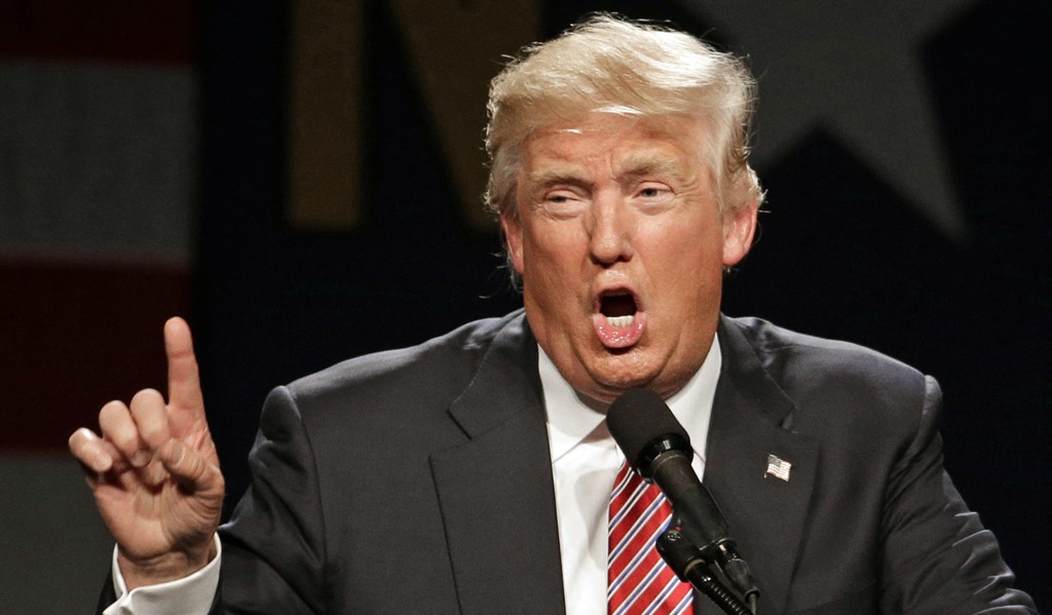For more than 30 years, both Hillary Clinton and Donald Trump have been high-profile and controversial celebrities. Both have been plagued by scandals and are viewed negatively by millions of voters. Clinton is facing possible federal indictment; Trump is being sued over Trump University.
Advertisement
If elected, Clinton would be first female president in U.S. history. If Trump prevails, he would be the first president to assume office without having held a political or Cabinet office or a high military rank.
Yet the race still could prove more conventional than unorthodox.
Trump is considered uniquely crude. But take some of our most iconic political figures and one can find comparable extremist rhetoric.
As California governor, Ronald Reagan once said of University of California at Berkeley protesters, "If it takes a bloodbath, let's get it over with. No more appeasement." When the Symbionese Liberation Army kidnapped heiress Patty Hearst and forced her family to distribute food to the poor, Reagan quipped, "It's just too bad we can't have an epidemic of botulism."
Barack Obama has scoffed this his own grandmother was a "typical white person," called on his supporters to "get in their face" of his opponents, invoked a variation of the phrase "bring a gun to a knife fight" in an attempt to fire up supporters during his first presidential campaign, and compared his own bad bowling to the supposed competition level of the Special Olympics.
"Never Trump" Republicans swear they will not vote for Trump. Bernie Sanders' frustrated followers say they could not envision voting for Clinton. But by November, the majority in both parties will probably support their nominees.
Recommended
Advertisement
Why? For all the flaws of both presidential candidates -- Trump is an undisciplined political amateur, Clinton a compromised and scripted establishmentarian -- they will still advance political agendas that are markedly at odds and represent radically different views of America's proper future.
True, both candidates are notorious flip-floppers and opportunists who seem to lack deeply held beliefs. But for now, Clinton is pledged to the progressive wing of the Democratic Party and has largely repudiated many of the centrist agendas of her husband Bill Clinton's 1990s administration. And Trump, for all his contradictions, is, at least for the moment, far more conservative than Clinton. Neither Trump nor Clinton is viewed by the other side as a centrist.
Trump is a Jacksonian nationalist who likely would choose America's friends and enemies solely on the basis of perceived national interests. Clinton presumably would continue Obama's lead-from-behind foreign policy. Trump would be blunt about the connection between terrorism and radical Islam. Clinton likely would mimic Obama's policy of not referring to Islam at all in such a context.
Trump probably would revise the tax code and lower taxes, cut back on government regulation and seek business-orientated solutions to the economy. Clinton likely would raise taxes on the upper income brackets and expand government in continuance of the Obama tradition.
Advertisement
Chances are that Trump would cut overall spending but increase defense expenditures. Clinton probably would expand entitlements and limit military spending to past norms.
Trump presumably would make good on his promise to close the border to illegal immigration by building a wall at the border and would also probably end sanctuary cities. Clinton likely would maintain the Obama administration's lax immigration policies and offer formal amnesties.
Clinton seems to believe that the government must act radically to curb global warming. Trump seemingly is not sure that man-caused warming is an existential threat worth drastically altering the economy to address.
Trump likely would oppose further gun control and follow a National Rifle Association agenda. Clinton would almost surely double down on the Obama administration's efforts to make gun ownership more difficult.
On the Supreme Court, Clinton undoubtedly would appoint more justices like progressive jurists Sonia Sotomayor and Elena Kagan. Trump probably would try to steer the court in the conservative direction of justices such as Samuel Alito and Clarence Thomas.
In general, if voters are content with the current foreign, economic, social and cultural policies of the Obama administration, then the progressive convert Clinton would likely ensure that those policies continue for at least four more years.
Advertisement
If, on the other hand, a voter feels Obama has been, in the words of Trump, a "disaster," then professed conservative Trump would represent a shift in the opposite direction.
We have become exhausted by the flurry of daily political news -- Trump's latest outrages, the fallout from Clinton's email scandal, and the unhappiness of both Sanders supporters and members of the Republican establishment with the nominees. But in the end, as with most elections, the 2016 election will still offer a stark political choice between two diverse messages -- however suspect and unpopular the respective messengers.

























Join the conversation as a VIP Member